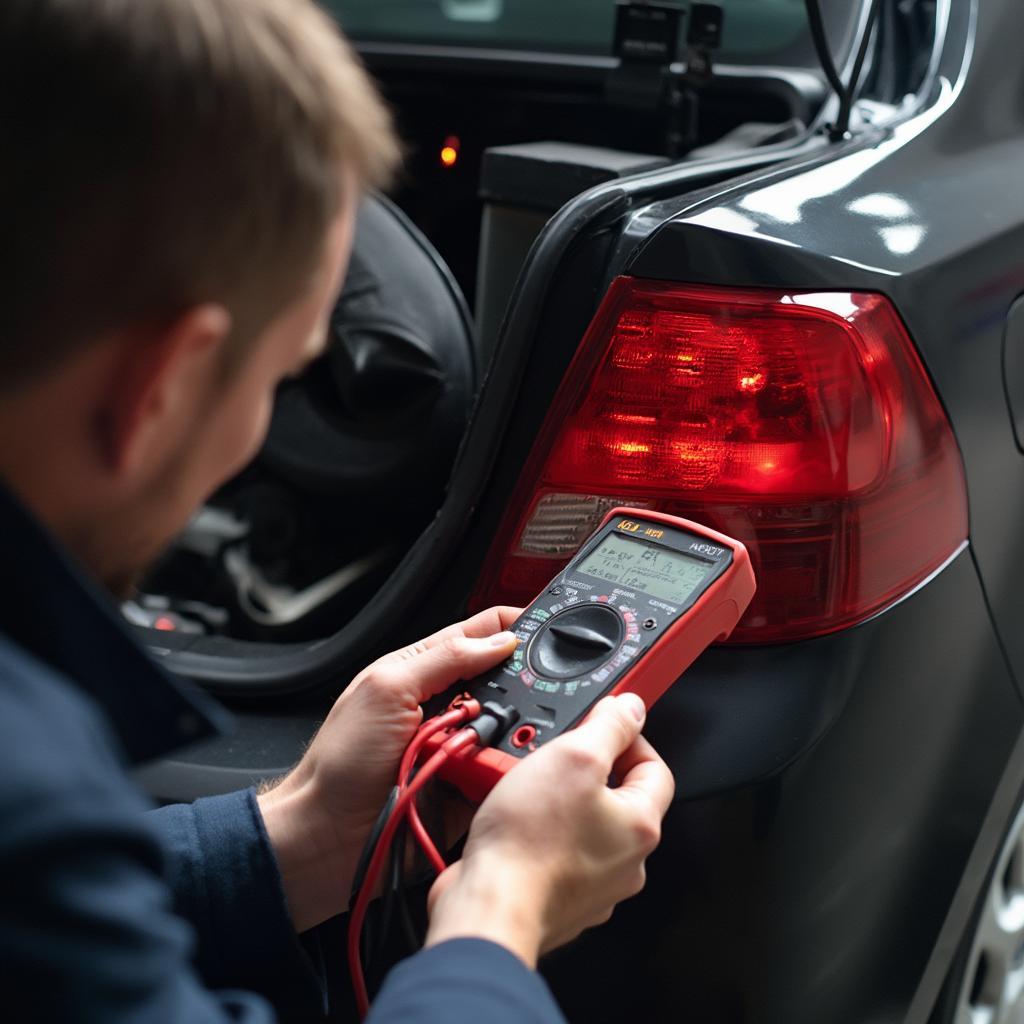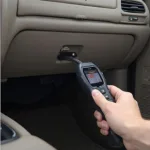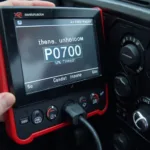Can an OBD2 scanner tell if brake lights are out? This is a common question among car owners. While OBD2 scanners are powerful diagnostic tools, their primary function is to monitor the engine and emissions systems. Let’s explore the relationship between OBD2 scanners and brake lights. You might be surprised by what you learn. After reading this article, you’ll understand the capabilities and limitations of your OBD2 scanner when it comes to diagnosing brake light issues.
Most OBD2 scanners focus on retrieving diagnostic trouble codes (DTCs) related to powertrain and emissions systems. These codes help identify issues with the engine, transmission, and other related components. However, brake lights are typically part of the body control module (BCM) or a separate lighting control module. These modules are not always accessible through a standard OBD2 scanner. See our articles on obd2 scanner service reset for more information about the capabilities of these devices.
How Do Brake Lights Work?
Brake lights operate on a simple circuit. When the brake pedal is pressed, a switch activates, completing the circuit and illuminating the brake lights. This system is usually independent of the systems monitored by a standard OBD2 scanner.
Why Would My Brake Lights Fail?
Several factors can cause brake light failure. The most common culprit is a blown bulb. Other causes include a faulty brake light switch, damaged wiring, or a blown fuse. Knowing the root cause is vital for an efficient repair. Understanding the different types of OBD2 readings is crucial. For more information, check out our list of obd2 readings.
Can Advanced OBD2 Scanners Detect Brake Light Problems?
While basic OBD2 scanners cannot detect brake light issues, some advanced, professional-grade scanners can communicate with the BCM or other relevant modules. These scanners offer more comprehensive diagnostic capabilities, including access to body systems and lighting. However, these scanners are generally more expensive and are typically used by professional mechanics.
Troubleshooting Brake Lights Without an OBD2 Scanner
If you suspect a problem with your brake lights, there are several simple checks you can perform without an OBD2 scanner:
- Visual Inspection: Check the brake light bulbs for signs of damage or burning.
- Brake Light Switch Test: Have someone observe the brake lights while you press the pedal. If they don’t illuminate, the switch may be faulty.
- Fuse Check: Locate and inspect the brake light fuse in your vehicle’s fuse box.
When to Consult a Mechanic
If you’ve performed these basic checks and haven’t identified the issue, or if you suspect a more complex electrical problem, it’s best to consult a qualified mechanic. They have the expertise and tools, including advanced OBD2 scanners, to diagnose and repair the problem effectively. You might want to consider an obd2 reader for brake change if you frequently work on your car.
Will an OBD2 Scanner Help with Other Lighting Issues?
Similar to brake lights, other exterior lighting issues, such as malfunctioning headlights or turn signals, are typically not diagnosed with a standard OBD2 scanner. These systems are usually managed by separate modules not always accessible through the standard OBD2 interface. Check out our resource on icon obd2 for more information on OBD2 functionalities.
Can an OBD2 Scanner Diagnose ABS Issues?
While brake lights are typically separate, issues with the Anti-lock Braking System (ABS) will often trigger a DTC that a standard OBD2 scanner can detect. This is because the ABS is more closely integrated with the vehicle’s electronic control systems.
Conclusion
While a standard OBD2 scanner can’t typically tell if your brake lights are out, it’s a valuable tool for diagnosing various engine and emissions problems. For brake light issues, simple visual inspections and checks often suffice. If the problem persists, consulting a mechanic with access to advanced diagnostic tools is recommended. Can an OBD2 scanner tell if brake lights are out? Usually not, but remember they are still a crucial tool for maintaining your vehicle’s overall health. For a great selection of OBD2 scanners, consider checking out the options available at obd2 scanners at harbor freight.
FAQ
- What is the main function of an OBD2 scanner? To diagnose engine and emissions related issues.
- Why can’t most OBD2 scanners detect brake light problems? Brake lights are often controlled by a separate module not accessible through standard OBD2.
- How can I troubleshoot brake light issues? Check the bulbs, brake light switch, and fuses.
- When should I consult a mechanic for brake light problems? If basic troubleshooting fails or if a complex electrical issue is suspected.
- What are some other uses for OBD2 scanners? Checking engine codes, monitoring sensor data, and verifying emissions readiness.
- Can an OBD2 scanner diagnose ABS issues? Yes, ABS problems often trigger DTCs detectable by standard OBD2 scanners.
- Where can I find affordable OBD2 scanners? Retailers like Harbor Freight often have a selection of OBD2 scanners.
When you need help, contact us via WhatsApp: +1(641)206-8880, Email: [email protected] or visit us at 789 Elm Street, San Francisco, CA 94102, USA. We have a 24/7 customer service team.


